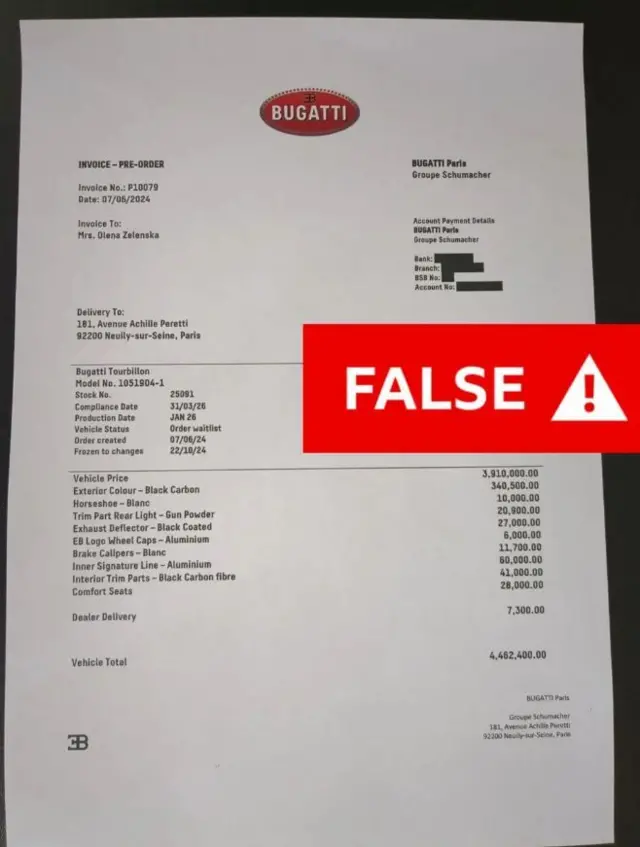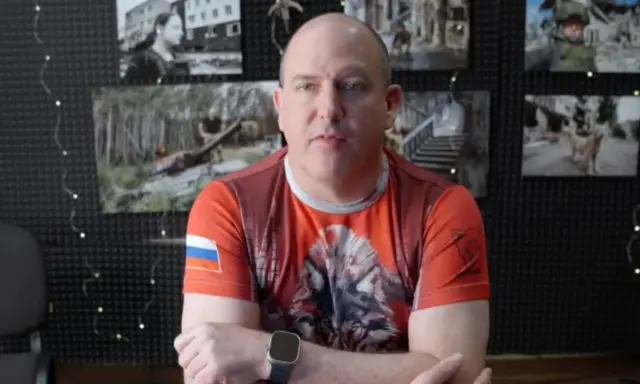Paul Myers, Olga Robinson, Shayan Sardarzada and Mike Wendling
A recent BBC investigation has revealed that a network of Russian-based websites is posing as American newspapers and using artificial intelligence to publish fake news aimed at the US election. To be influenced.
One of the men behind the operation is a former American police officer who moved from Florida to Moscow.
A news item published a few days ago on an obscure French website claimed that Ukrainian First Lady Olena Zelenska allegedly spent $4.8 million (a 1 billion 33 crore rupees) bought a rare Bugatti Tourbillon sports car.
The news said that US military aid money was used for the purchase of this luxury car.
This could have been a big news if it was true but soon the news was denied from all sides.
Experts pointed out several anomalies in the vehicle purchase receipt posted online along with the news. Only one video of the whistleblower mentioned in the news emerged, possibly created using artificial intelligence.
The Bugatti company also vehemently denied it, terming it as ‘fake news’ while the company’s dealership in Paris also threatened legal action against those responsible for the news.
But despite all this, the news spread like wildfire and many influential people also shared the news.
Jackson Hinkle, a pro-Russian and pro-Donald Trump activist, posted a link to the news on his X (formerly Twitter), which was viewed by more than 6.5 million people.
Several other X accounts carried the news further, and according to the site’s data, the news reached at least 12 million people.
It was a fake news story planted on a fake news website designed to be widely disseminated online.
It originated from a Russian-based disinformation operation that BBC Verify identified last year. Then the purpose of this operation was to weaken the government of Ukraine.

A recent BBC investigation spanning more than six months, which examined hundreds of articles published on dozens of websites, found that the operation now has a new target: American voters.
An analysis of dozens of fake news stories by the BBC found that the fake news was aimed at influencing American voters and sowing the seeds of distrust ahead of the November election.
Most of these news items do not make any significant impact, but some of them have been shared by influential people, including members of the US Congress.
The news of the Ukrainian first lady’s purchase of a Bugatti car pretty much achieves many of the main goals of this entire operation, which includes Ukrainian corruption and the misuse of US aid.
Another fake news story that went viral earlier this year was aimed directly at American politics.
It was published on a website called The Houston Post. The Houston Post is one of dozens of news websites with American names that are actually run from Moscow. The news alleges that the FBI illegally wiretapped Donald Trump’s Florida resort.
The news repeated Trump’s allegations that the US legal system was being used against him and that there was a conspiracy to derail his campaign. It was also alleged that the opponents of the former president were using dirty tricks to weaken him.
Donald Trump himself has accused the FBI of spying on him.
Experts believe that this action is just part of Moscow’s efforts to spread false information during the US election campaign.
Although there is no concrete evidence that these fake news websites are being run under the patronage of the Russian state. However, researchers say the skill and scale of the campaign matches Russia’s previous efforts to spread disinformation in the West.
Chris Krebs was responsible for ensuring the integrity of the 2020 presidential election as director of the US Cybersecurity and Infrastructure Security Agency.
He says that Russia, like others, will try to interfere in the 2024 US elections.
Krebs says efforts by Russia to amplify controversial points in American politics can already be seen on social media and elsewhere.
The BBC contacted the Russian Foreign Ministry and the Russian embassies in the US and UK but did not receive a response.
We also attempted to reach Hinkle for comment.



